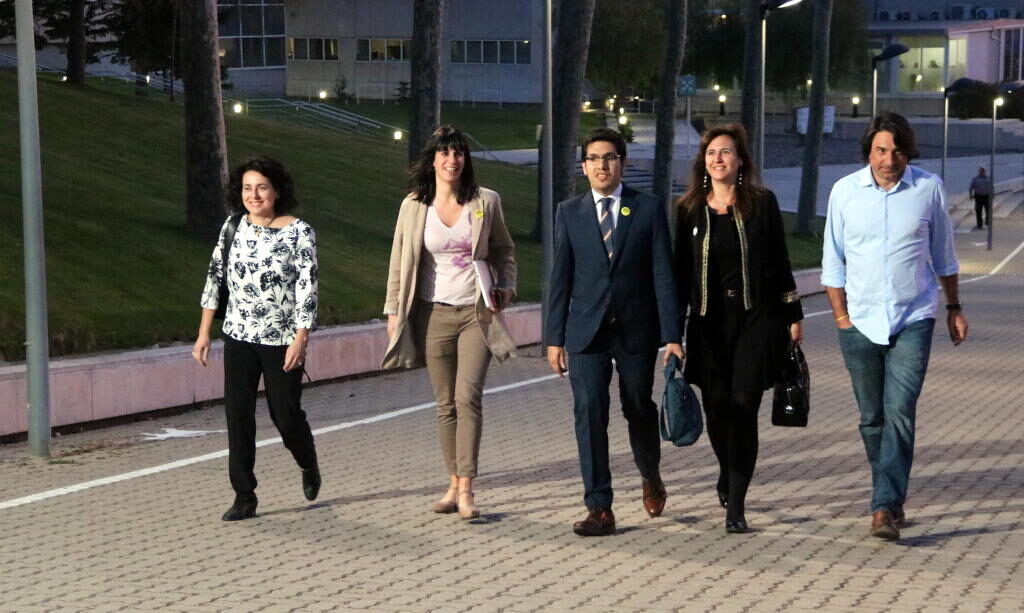15.05.2019 - 08:57
|
Actualització: 15.05.2019 - 10:57
The EU election televised debate was a unique one, as one of the candidates taking part walked away as soon as his first turn started. Aleix Sarri, member of the exiled president Carles Puigdemont’s list, rejected this way the fact that the electoral authority barred a jailed and an exiled candidate to take part in the debate.
This struck the whole program on the Catalan public TV, with the other candidates taking sides on the electoral board’s decision. Esquerra’s frontrunner, Oriol Junqueras, in precautionary jail, could not take part because it was “incompatible” with the timetables of the prison where he is being held. Junts per Catalunya’s second-in-command, Toni Comín, in exile, was also barred on the grounds that it would not be fair him taking part via videolink while the others are in the TV set.
Jordi Solé, one of the candidates of Esquerra, protested handing in a recorder to the anchor with a message from Junqueras, and asked the anchor for it to be recorded in the final part of debate.
Dialogue
The Greens’ candidate, Ernest Urtasun, also supported the jailed and exiled leaders barred from taking part in televised debate. The candidate for the Socialists, Javi López, called on all parties to “listen to Europe” and “engage in dialogue” to find a way out of the Catalan crisis.
Meanwhile, Esteban González Pons, member of the People’s Party, said situations of jailed Oriol Junqueras and exiled Carles Puigdemont are not comparable. “The former is in a cell, while the other is in a mansion in the wealthiest part of Brussels,” he stated.
And the candidate for Ciutadans, Jordi Cañas, accuses the jailed and the exiled leaders barred from the EU election televised debate of “coup-mongers,” referring to their role in the 2017 independence push.
European issues
All of them found some compromise in asking for Catalan language to be official in the EU, and also coincided in moving forward with the fight against the climate change.
Other hot topics in the debate, in which candidates mostly disagreed, was the dilemma between continuing or ending austerity measures, the reform of the Eurozone, the opportunities of Brexit and the creation of a European army.


